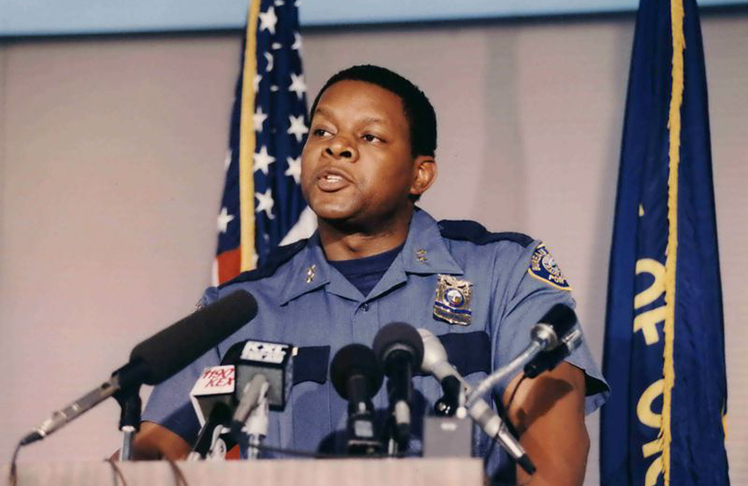
Portland’s own first Black police chief, Charles Moose, died on Thanksgiving, at age 68. Moose led the Portland Police Bureau through most of the 1990s. Moose joined the almost entirely white Portland police bureau in 1975 and steadily rose through the ranks, making captain in 1992.
The entire country got to know Chief Moose while he was in Montgomery County, Maryland just outside of Washington, DC. He lead the manhunt for those responsible for the DC sniper attacks while serving as chief of the Montgomery County Police Department. Moose worked at the Portland Police Bureau for 24 years, ending with a six-year tenure as chief. He was selected by then-Mayor Vera Katz. Moose also worked for the U.S. Air Force and the Honolulu Police Department and aided in the rescue efforts following Hurricane Katrina in 2005 with the National Guard, before retiring to Florida.
Moose’s wife stated in a Facebook post, “This evening, while watching football and sitting in his recliner, I’m so sad to say that the absolute love of my life passed away. He called my name, and I came running but it was too late. His body was shutting down,” adding that he was her best friend since 1982. Portland police Chief Chuck Lovell offered his condolences in a statement Friday morning. “I am deeply saddened by the death of Chief Charles Moose last night, who led PPB in the 1990s. I feel connected to Chief Moose as he was the first African-American Chief, a champion of community policing and led the Bureau during challenging times,” Lovell said. “Chief Moose was a large presence and had a servant’s heart. On behalf of PPB, I extend our support to his wife, Sandy and his loved ones during this challenging time.”
The Montgomery County police also announced his death Friday.
Moose’s tenure wasn’t all smooth sailing. He had a notoriously bad temper and was disciplined multiple times throughout his career for turning that anger on members of the public and city employees.
“I’m ashamed of my behavior in these situations,” Moose said in 1997, after his record was made public. “I think it’s an ongoing problem for me because I continue to be a Black person in a predominantly white community.” Moose said that, in each instance, he felt he was being discriminated against, and he criticized the bureau for the way it handled the complaints.
The official cause of death has not yet been determined, but it’s suspected that he had a heart attack, Sandy Moose said.















